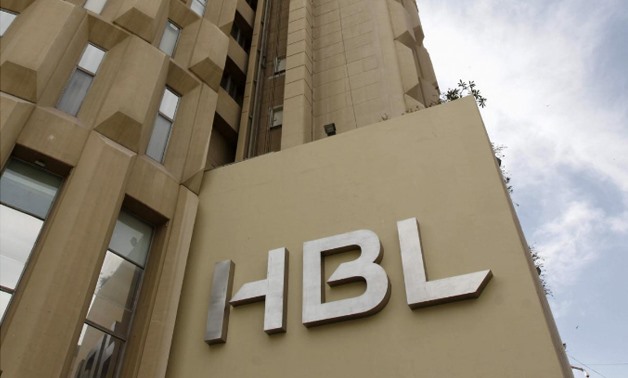
The Habib Bank Limited (HBL) logo is seen on the head office building in Karachi, Pakistan, April 18, 2016.
Akhtar Soomro/File Photo
ISLAMABAD - 29 August 2017: The New York State Department of Financial Services (DFS) said it is seeking to fine Habib Bank Ltd, Pakistan’s biggest lender, up to $630 million for “grave” compliance failures relating to anti-money laundering rules and sanctions at its only U.S. branch.
If imposed, the penalty on Habib Bank (HBL) (HBL.KA) would be the largest-ever faced by a Pakistani financial institution.
Karachi-listed HBL plans to surrender the foreign bank license for its New York branch, according to the DFS, which intends to expand its review of the bank’s transactions.
The DFS said in a filing that HBL’s compliance was “dangerously weak” and that “serious and persistent” failings found at its New York branch appeared to affect the entire Habib banking enterprise, posing “grave risks” to the banking system.
Nausheen Ahmad, the bank’s company secretary, said in a statement on Monday that DFS did not recognize “the significant progress that HBL has made at its branch in New York” and that the bank would vigorously contest the proposed fine in U.S. courts.
HBL said the closure of its New York operation would have no material impact on HBL’s business outside the United States. Pakistan’s central bank said the potential fine posed no imminent risks to HBL or the country’s banking system.
The DFS said in a filing that its investigation had found that HBL held a U.S. clearing account with Saudi’s largest private bank Al Rajhi, which has been linked in the media and by the U.S. Senate to Al Qaeda and the financing of extremism.
The regulator also found instances of so-called “wire-stripping”, where a bank deliberately strips out information related to a payment, such as the originator or beneficiary, that may raise suspicions.
In one such instance of wire-stripping, the payment concerned involved a Chinese weapons manufacturer that was subject to U.S. non-proliferation sanctions, the DFS said.
The DFS also said HBL had not screened more than 4,000 transactions because the parties involved were on a “good-guy” list of customers identified by the bank as very low risk.
However, more than 150 screening terms, such as names or entities, on the so-called good guy list directly corresponded to entities that had been sanctioned by the U.S. Treasury Department, it said. These included a transaction that involved the leader of a Pakistani militant group and an international arms dealer.
The DFS said its probe also uncovered payments totaling more than $27,000 sent to an account at the bank’s head office associated with an individual wanted by the FBI for cyber crimes.
SERIOUS DEFICIENCIES
The DFS said HBL’s compliance issues dated back to 2006, when the bank agreed with regulators to address problems with the bank’s sanctions laws compliance program.
Since then, HBL has struggled to comply with the agreement, the DFS said, noting a 2015 inspection identified “serious deficiencies” in the bank’s anti-money laundering controls.
HBL, majority-owned by the Pakistani government, subsequently agreed to introduce a range of measures to guard against money laundering and sanctions violations, including improving management oversight, tightening customer due diligence and suspicious transaction monitoring.
But a 2016 inspection revealed ongoing problems, including insufficient training, documentation, oversight, and a U.S.-dollar clearing account with Saudi Arabia's Al Rajhi, which "presented Habib Bank with a significant risk of being used for terrorist financing," the DFS said.
New York State imposed strict anti-money laundering regulations in 2015, and the DFS has since pursued several aggressive enforcement actions against foreign banks for anti-money laundering control lapses over the past two years.
These include Agricultural Bank of China (601288.SS), Mega International Commercial Bank of Taiwan and National Bank of Pakistan (NBPK.KA).
In 2013, the DFS imposed a $2.4 billion fine on BNP Paribas for sanctions breaches.


Comments
Leave a Comment